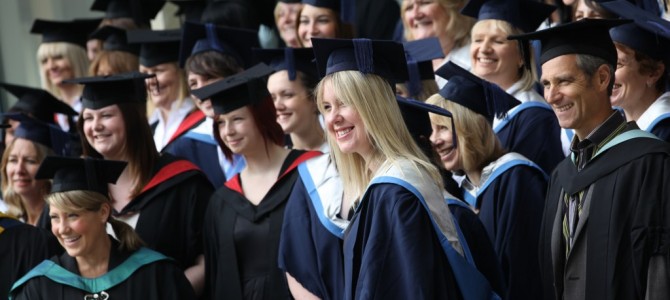
In 1988, Frank Smith observed that what children learned was not the result of formal instruction. A teacher, even a very good teacher, seemed to have limited influence on what students did and did not pick up. Two students could be in all the same classes and one might develop correct grammar while another might not.
So what caused one student to learn more or less than the other if both had the same teachers? According to Smith, the students didn’t really learn through instruction or even conscious emulation. Instead, they acquired the characteristics of people they considered themselves to be like. This sense of “joining the club” seemed to account for the students’ learning.
So what really made the difference between whether Jayden or Olivia learned grammar was if the people they wanted to be like had learned grammar. The perceived identity of the child, not the prowess of the teacher, made the biggest impact.
This observation goes beyond grammar and elementary school. Today, a professor’s success at influencing her students remains subject to her students’ perceived identities. For example, even though 80 percent of professors are liberal, they tend to have a small influence on the political leanings of their students. However, if what Smith observed is true, one group of students would be dramatically influenced by their professors’ liberalism: the students who see themselves becoming professors.
This is one of the subtle dangers of political dominance in the academy. Because the academy often promotes from within itself, it will likely only become increasingly liberal. Without honestly addressing the issue, conservatism will continue to be filtered out.
Knowledge Threads Versus Sand
Of course another common explanation is that conservatives are simply “closed-minded or money grubbing.” But, according to the authors of “Passing on the Right,” a book about conservative professors in progressive universities, the evidence does not support that notion. So how do people get these ideas? One possibility: some people view knowledge acquisition like filling up a sand bucket. A teacher simply distributes knowledge to students. Voilá, mission accomplished. If students become liberal, it’s because the facts lean liberal.
But according to Smith’s theory of knowledge, a teacher doesn’t possess knowledge but helps students access knowledge through their participation within a community. Learning happens not akin to filling sand buckets, but by connecting students to authentic communities. In the end it is the students who can honestly see themselves as part of a community who will gain access to the knowledge within.
Thus, knowledge is not like sand. People build knowledge through relationships, somewhat like tiny silk threads that connect people. And currently almost all these silk threads are held by liberals. In this sense, professors are not liberal because they have more knowledge, but because they have gained access to knowledge by being liberal.
Learning is a process of identity, and the identity of learning never ends. It is even possible that the field of knowledge the academy represents could have been conservative in nature. How do we know that it could have been different? Because it has been different.
We Mostly Do What Our Peers Do
According to Irving Babbitt, a professor at Harvard University in the 1920s, the spirit of his time was “the positive and critical spirit, the spirit that refuses to take things on authority.” It sounds a lot like our contemporary sentiment, doesn’t it? However, there is one great difference. Babbitt was a staunch conservative, as were many of the leading intellectuals of his day: T. S Eliot, Evelyn Waugh, Wallace Stevens, Alan Tate, etc.
To believe that smart people then just didn’t know as much as smart people now is an example of chronological snobbery—an assumption that because we have progressed in some things we have progressed in all things. While it may be true that if those scholars lived today they would be liberal, it is because liberalism is woven into the social fabric of knowledge currently on display at universities. It is not because it couldn’t be otherwise. It is the very fact that they would indeed be liberal (and that today’s professors could likely have been conservative if they lived then) that makes the whole point.
It is simply wrong to believe that professors tend to be liberal because professors are smarter than everyone else. It comes down to the same identity issues we’re all dealing with. That’s why all my English professors owned Mac laptops even though the only program they ever used was Word. Why, with a professor’s salary, would you pay an extra thousand dollars for a Mac when Word is native to Windows?
The reason is simple: because owning a Mac says you’re serious. It says you’re cutting-edge. It signals success. Besides, every other professor has one. A professor’s computer contains his life work, encages his articles, brings to life his next book. They want it to look as important as it feels. They’re not liberal because they’re smarter. No, it’s because they’re like everyone else.
This article is reprinted, with permission, from Heterodox Academy.









